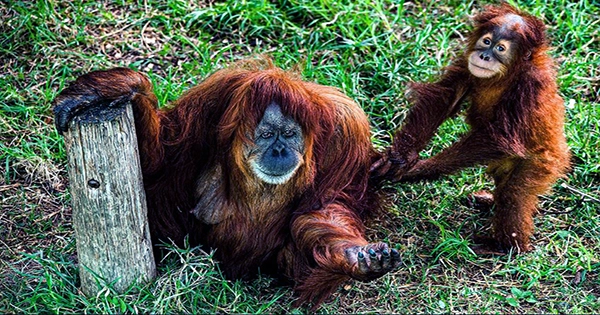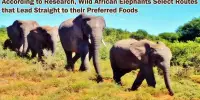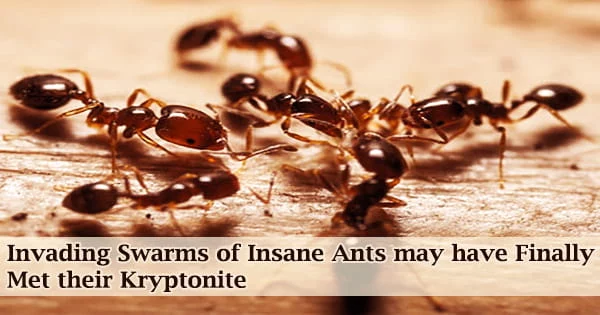Apes’ vocabularies change when they hang out, much like humans’, and it only takes one social contact to develop these creatures’ individual “vocal personalities.” That’s the key conclusion of a new study headed by University of Warwick experts, who claim their findings constitute a breakthrough in understanding language evolution. This new study looked into social mixing among 70 orangutans from six groups in Borneo and Sumatra, Southeast Asia, and was published in the journal Nature Ecology and Evolution. Dr. Adriano R Lameira, the study’s chief researcher, and his colleagues lived among the apes, allowing them to capture calls and compile the world’s biggest collection of voice recordings for scientific research.
Their massive playlist of orangutan interactions and vocalizations indicated that dense populations had more language variation and experimentation, with animals using a wide range of original cries blended with unique sounds that could last or be discarded. Smaller groups living in a more dispersed configuration, on the other hand, tended to stick to a narrower range of tried-and-true sounds. While there was less exploration with new sounds in these sparse groups, once introduced, unexpected noises tended to persist. This meant that each individual’s total repertory was actually richer than that of the tightly packed orangutans, who were constantly discarding new sounds.
In order for voice norms to become operative, it’s probable that social influence must exist as a method of deciding on a set standard of communication among a population. As a result, determining when apes began to pay attention to and be influenced by the vocalizations of other people is a critical step in understanding how language emerged. The authors believe that orangutans have “vocal personalities” that, like humans, may be developed and impacted by interactions with other orangutans. As a result, they serve as a stepping stone between vocalizations and language in great apes.
“Great apes, both in the wild and in captivity, are finally assisting us in solving one of science’s oldest problems — the origin and development of language,” Lameira said in a statement. “Instead of having to credit our special linguistic talents and superior intellect to divine intervention or random genetic lottery, we can now start imagining a progressive path that likely led to the birth of the talking ape, us.”
While the research is exciting in terms of the increasing sophistication of communication among our closest relatives, the authors feel it also shows what we stand to lose if more isn’t done to safeguard our living forebears. “As long as we can ensure their protection and preservation in the wild,” Lameira said, “many more clues await us in the lives of our closest living relatives.” “Each vanishing population will carry with it irretrievable snippets of our species’ evolutionary past.”
















